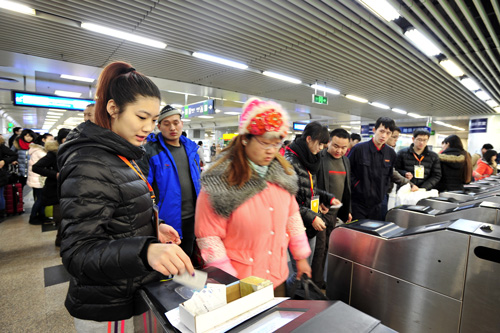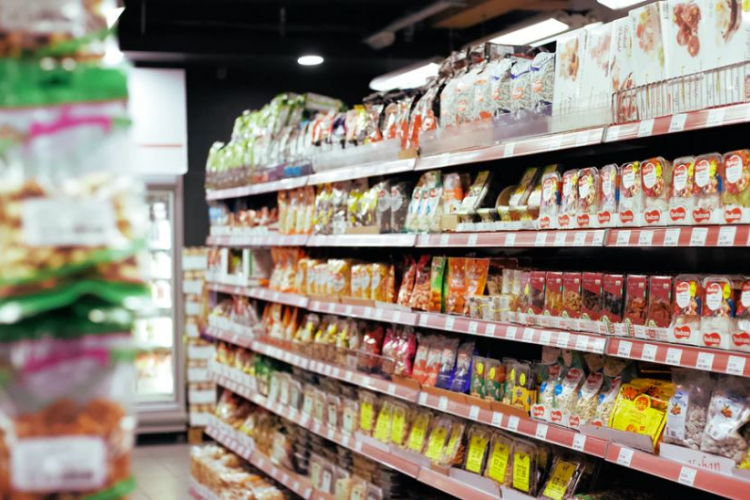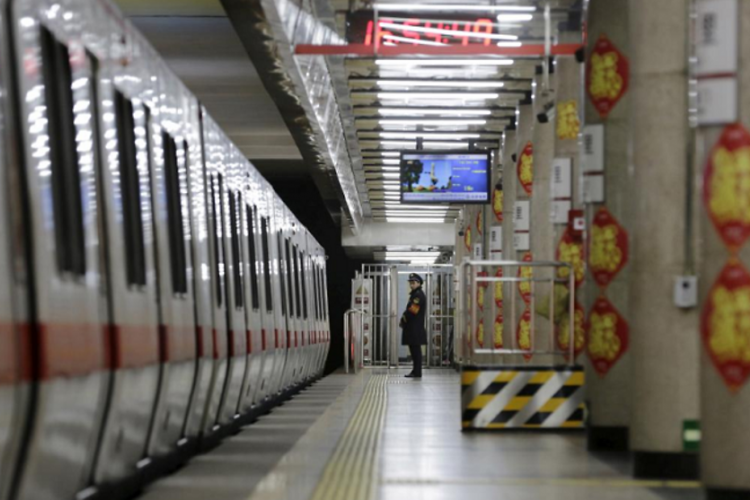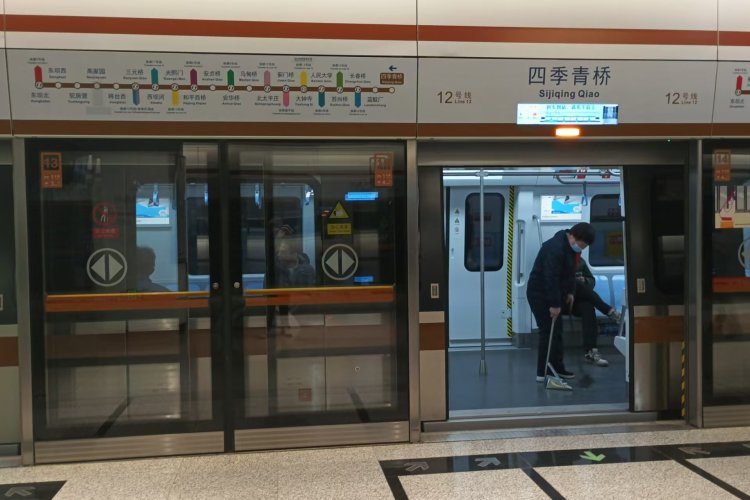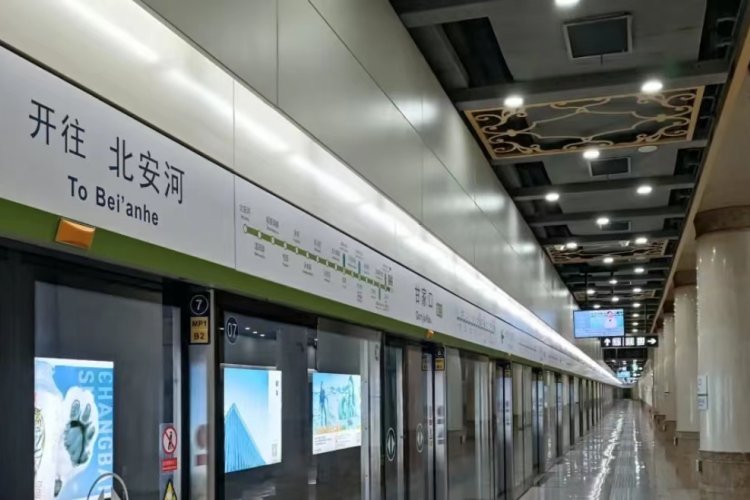Beijing Subway Sees 800,000 Fewer Daily Trips Since Price Hike
Beijing's subway system has seen an overall decrease in daily passenger trips of 8 percent since the era of RMB 2 unlimited-distance pricing ended December 28, the Beijing Transportation Research Center reported yesterday.
Line 10 saw the most significant decrease in passenger trips, at 18 percent. In fact, all lines with the exception of those with new extensions (Lines 6, 15, and 14) saw decreases, representing an overall passenger volume decrease of 12 percent on unimproved lines.
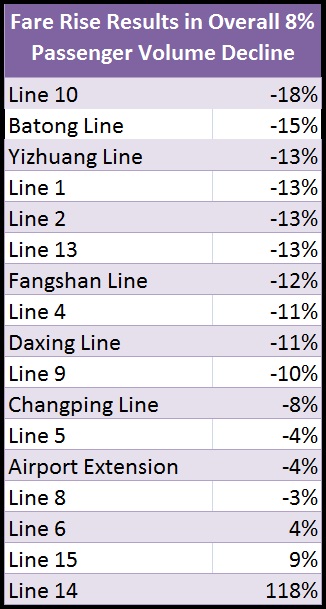
However the price increases didn't deter as many rush hour commuters, as the overall morning rush hours saw only a 3.9 percent decrease in passenger volume, while the evening commute has been down by more than twice that, registering a 8.7 percent decline.
The only line to see a rush hour increase has been Line 6, which statisticians attributed to the extension of the line and the new connection with Line 14, both of which opened the same day as the price hikes were implemented.
Despite the declines, more than half of Beijing's subway lines – Lines 1, 4, 5, 6, 9, 10 13, plus the Changping, Batong and Daxing Lines – continue to operate at over 100 percent capacity during rush hours, with the Changping Line the busiest at 138 percent of rated capacity, which works out to nearly 8 people per square meter.
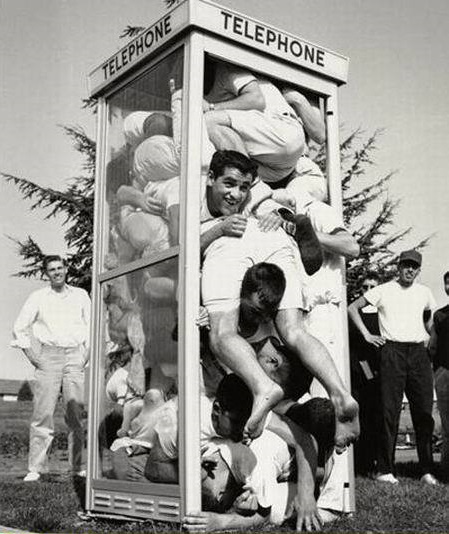
Shortest distance and longest distance travel have decreased the most; short distance trips (less than 4km) were down 11.5 percent while the longest distance trips (72km and above) decreased by 13 percent.
Photo: Beijing Subway
Related stories :
Comments
New comments are displayed first.Comments
![]() squid
Submitted by Guest on Sun, 01/18/2015 - 12:27 Permalink
squid
Submitted by Guest on Sun, 01/18/2015 - 12:27 Permalink
Re: Beijing Subway Sees 800,000 Fewer Daily Trips Since Price...
Daduck,
You sound just like mtnerror. "I just want fairness for all.." You think the government needs to preserve a principle of "fairness" over all other principles, such as solving city problems. And yet you have a strange idea of fairness.
People who are wealthy, and who live in affleunt areas of Beijing are having zero impact from this policy change, none! Yet, if you are poor, and forced to live far from your work place, because of insane real estate prices, you are impacted greatly (poor people don't only work 22 days per month, did you know?)
Do you have a problem with student discounts? Senior citizens? You should, if you are holding to your version of 'fairness". They still use the service, why should they pay less? What about social services in the city? Semms rich people need to pay for this through taxes, even though they don't use them. Is that fair? And you know, I can't think of the last time I had to use a middle school facilties, I sure hope my taxes don't go to that, right?
Governments pay for things that are important to the city and the community as a whole. The idea of pay as you go for everything you consume yourself is presposterus. If that was the case you wouldn't need a city, a government. Everything could just be run by private industry. You want water at your house? Pay a private company to run pipes to your house and give it to you. Put toll boxes on all roads, only those who drive should pay for all roads.
The entire idea of government is to pool resources from everyone (and that includes those who can afford more paying more) and then the government decides how best to use those funds to make the city better. Like eliminating pollution and heavy traffic, get it??
Just because the Republicans in America try to convince everyone that if you just let rich people get richer, everyone will benefit, that doesn't make it so. Time Warner wants to charge people differently for the internet depending on how much you use. They say it is "fair". It is also a great way to destroy the internet for smart innovation from people who can't afford it. Thank godness not all countries will follow Americas lead.
What city needs cheap, subsidized traffic sollutions more than Beijing? Admin, refused to answer, will you?
![]() admin
Submitted by Guest on Sun, 01/18/2015 - 07:57 Permalink
admin
Submitted by Guest on Sun, 01/18/2015 - 07:57 Permalink
Re: Beijing Subway Sees 800,000 Fewer Daily Trips Since Price...
Furthermore, when admin so casually says, well, they will just change to walking or riding a bike if they can't afford it. That is just idotic on the face of it.
I love how you conveniently left out buses from your rebuttal
And it's not "they will" .... they already have.
![]() daduck
Submitted by Guest on Sun, 01/18/2015 - 00:40 Permalink
daduck
Submitted by Guest on Sun, 01/18/2015 - 00:40 Permalink
Re: Beijing Subway Sees 800,000 Fewer Daily Trips Since Price...
I didn't want to get involved in this conversation at first place but I changed my mind.
Your point is "making 5000 per month in a city like Beijing would be very tight to live". Say you use RMB 5 to for a single ride to work, so you pay RMB 10 per day. There are usually 22 workdays per month, so your monthly cost for commuting is around RMB 220, but 220 is just a fraction of 5000. See? I agree with your that "5000 per month in a city like Beijing would be tight to live" but that doesn't mean commuting cost is the cause. So why do you pick on it? If you failed a test in which you lost 35 points in an essay and 5 points in multiple choices---should you rather try to improve your essay writing skills than try to get an even higher score in the multiple choices---you already did pretty good in the multiple choices?
Second, it seems that both you and TX_Chick confuse the definition of fairness with the definition of charity. Charging subway fares based upon distance traveled is completely fair for anybody, because commuters use more public resources to travel further. Tom drives 30 mile each day to commute and he pays USD 4 for it; I drive 90 miles per day to commute and I pay 12 bucks---that means fair (learn now if you didn't understand the concept before), and that's how the world works for most of the time. However, as you or TX_Chick pointed out that people who live in the outskirts are likely to be poorer than people who live near, you two can argue that the new fares are not charitable because they don't give the poor an advantage.
Communism is good. I like the idea. But we are not getting there in one day.
![]() squid
Submitted by Guest on Sat, 01/17/2015 - 13:25 Permalink
squid
Submitted by Guest on Sat, 01/17/2015 - 13:25 Permalink
Re: Beijing Subway Sees 800,000 Fewer Daily Trips Since Price...
So 50% of the population of Beijing has an income of less than 5000 per month.
Now, I would suggest that even making 5000 per month in a city like Beijing would be very tight to live, and any small increase would be very challenging for such a person-but its worse than that, as you have pointed out. HALF of the entire population earns LESS than that!
So, guess what the half that earns more than 5000 per month does? They drive and take taxis. So virtually EVERYONE riding the subways is earning less.
Furthermore, when admin so casually says, well, they will just change to walking or riding a bike if they can't afford it. That is just idotic on the face of it. If they are travelling far (and thus have a greater increase in fees) then how are they going to walk? If they aren't travelling far, I guess their fare didn't go up much, so that is not the 800,000 who are not using the subway now. Instead what they probably will do is find a way to get an electric scooter. Yeah, more electric scooters, more traffic!! Hooray, ADMIN MUST BE THRILLED.
Half the population takes surface street, and HALF earns LESS than 5000.
I guess if you only ride the subway to sanlitun, it looks like everyone on the subway is rich.
Great policy!
![]() TX_Chick
Submitted by Guest on Sat, 01/17/2015 - 10:40 Permalink
TX_Chick
Submitted by Guest on Sat, 01/17/2015 - 10:40 Permalink
Re: Beijing Subway Sees 800,000 Fewer Daily Trips Since Price...
I think someone doesn't understand what median is. The median is the middle number once you put all the data in order from smallest to largest. A median of 5000 means that 50% of the population has an income less than that amount, and 50% has an income greater. In a city like Beijing, the median is a better statistic to use than the mean(average), which adds all the values and divides by the total. The mean is more affected by the outliers of all the rich people.
![]() admin
Submitted by Guest on Sat, 01/17/2015 - 06:31 Permalink
admin
Submitted by Guest on Sat, 01/17/2015 - 06:31 Permalink
Re: Beijing Subway Sees 800,000 Fewer Daily Trips Since Price...
The 800,000 reduction are people who are now taking buses, bikes or walking because they can do it for cheaper. These people are not deciding to give up their jobs and become beggars or wards of the state because they can no longer afford to commute.
A smaller fraction may decide thety are better off driving a car, where they will pay more in parking fees alone than the cost of a subway trip, but the subway fare rise is not putting tons of people into driving to work.
My point is I'm countering your incessant claim about how poor and downtrodden Beijing is (which you do every time I mention that Beijing's median salary is over 5k) which you seem to think is a result of 99% of everyone making 1,000 kuai and 1% making 500k.
Obviously you are correct that the super-rich (who don't take the subway) inflate this 5k figure somewhat.
However, distorting it in the other direction is the massive amount of unreported income that never gets into the official channels. Everyone in town seems to have some scam going where they reduce their reported income via fapiaos and other shenanigans.
Add to that the millions in Beijing that have caught the entrepreneurial bug. Think of the millions of small shopowners, black taxi drivers, internet retailers and landlords conduct business without providing fa piaos. All unreported income.
My guess is that when you add that all up, the actual median income is considerably higher than 5k.
It's just not a sound argument to say that the fares are too expensive for Beijing. They are reasonable.
![]() squid
Submitted by Guest on Fri, 01/16/2015 - 20:16 Permalink
squid
Submitted by Guest on Fri, 01/16/2015 - 20:16 Permalink
Re: Beijing Subway Sees 800,000 Fewer Daily Trips Since Price...
Admin,
You mean like the 800,000 people who are now using other means of transportation above ground daily?
You are basing your assesment of how many people won't be harmed by the increase in transportation fees, based on your count of Iphone 6's.
That's pure genius.
![]() admin
Submitted by Guest on Fri, 01/16/2015 - 14:31 Permalink
admin
Submitted by Guest on Fri, 01/16/2015 - 14:31 Permalink
Re: Beijing Subway Sees 800,000 Fewer Daily Trips Since Price...
Furthermore, most people who have a high income can afford cars, so that means the people riding the subways clearly have to have much lower incomes.
Squid: something tells me you are not a regular subway commuter.
Take the subway and count the number of people carrying brand new iPhone 6s, which retail for over RMB 5000.
Then come back here and argue with me more about how everyone who takes the subway is poor.
I feel just as bad as you do for the plight of the poor. But the fact is Beijing -- and the subway -- is flooded with people who can afford USD 2 a day commuting costs without too much hardship.
Thank you and good night
![]() squid
Submitted by Guest on Fri, 01/16/2015 - 11:14 Permalink
squid
Submitted by Guest on Fri, 01/16/2015 - 11:14 Permalink
Re: Beijing Subway Sees 800,000 Fewer Daily Trips Since Price...
Admin,
If beijing shouldn't have one of the cheapest subways in the world, then tell me, where exactly should they have a cheap subway? In Bhutan?
![]() squid
Submitted by Guest on Fri, 01/16/2015 - 11:12 Permalink
squid
Submitted by Guest on Fri, 01/16/2015 - 11:12 Permalink
Re: Beijing Subway Sees 800,000 Fewer Daily Trips Since Price...
I have seen you repeat this 5000 per month income statistic several times, and it is complete nonsense for a number of reasons.
Does this include all of the people who don't have an income, like retirees and students? Of course not. And what about the skewing of that figure by the people who have extraordinarily high incomes? Furthermore, most people who have a high income can afford cars, so that means the people riding the subways clearly have to have much lower incomes. And since 800,000 less people per day are riding the subways, clearly it is a financial hardship. And the people most likely to ride the subway long distances are those who can not afford to live in the expensive inner areas. Its a triple whammy. How well do you think a guy with a monthly income of 5000rmb, and who must pay a Beijing type of mortage or rent can afford a triple raise to the cost of his daily communte? Do you think 5000 rmb leaves a lot to live off of in Beijing? Have you ever tried it?
What if you have a 5000 per month income, and a wife with two daughters? Give me a breakdown of how easily that guy can afford to pay more for travelling? How much is his rent? Kids school fees? Do his children need to eat? That's nuts. I guess he could skip the heating or water bills.
Can you think of any problem in Beijing bigger than its pollution and congestion problems? What better use of government funds is there than for Beijing to tackle these two issues? Instead you want the government to spend the money on what exactly?
![]() admin
Submitted by Guest on Fri, 01/16/2015 - 06:37 Permalink
admin
Submitted by Guest on Fri, 01/16/2015 - 06:37 Permalink
Re: Beijing Subway Sees 800,000 Fewer Daily Trips Since Price...
There is no reasonable reason why Beijing in 2014 -- which currently has median incomes over RMB 5000 a month and one of the largest subway networks in the world -- should have remained one of the cheapest subways in the world. Period.
![]() squid
Submitted by Guest on Fri, 01/16/2015 - 01:58 Permalink
squid
Submitted by Guest on Fri, 01/16/2015 - 01:58 Permalink
Re: Beijing Subway Sees 800,000 Fewer Daily Trips Since Price...
Let's see, 800,000 less passengers per day. That works out to about 48 million less in revenue (at least) per month, or half a billion dollars a year. And nearly a million MORE people per day using other means of transportation. Plus the cost of implementing all these changes, the slower moving crowds because of more complicated ticket purchasing, and, and...what is the benefit to the city again?
Oh, yea, we are going to use that money we didn't spend for the subway on, ..nothing, because we haven't saved any money at all! Where is mtnerror again, bragging about what a great thing this is for one the most congested, most polluted cities in the world?
Well, at least more poor people will be harmed, so its got that going for it...
![]() robbina984
Submitted by Guest on Wed, 01/14/2015 - 10:09 Permalink
robbina984
Submitted by Guest on Wed, 01/14/2015 - 10:09 Permalink
Re: Beijing Subway Sees 800,000 Fewer Daily Trips Since Price...
That is impossible meanwhile there is speculation everywhere with black-cars, overcrowded and cheap apartment bed place, cheap restaurant, barbecue and barge on the streets! poor people always find way to survive (and well, in fact everyone has the newest model of smartphone in hands!!!)
![]() TX_Chick
Submitted by Guest on Tue, 01/13/2015 - 15:50 Permalink
TX_Chick
Submitted by Guest on Tue, 01/13/2015 - 15:50 Permalink
Re: Beijing Subway Sees 800,000 Fewer Daily Trips Since Price...
I think we're using different definitions of penalize.
According to www.dictionary.com, penalize means:
verb (used with object), penalized, penalizing.
1.
to subject to a penalty, as a person.
2.
to declare (an action, deed, etc.) punishable by law or rule.
3.
to put under a disadvantage or handicap.
Poor people are definitely being put at a disadvantage/handicap by suddenly needing to pay triple (or more) the amount for transportation. A gradual increase would have been more easily absorbed by budgets. The people who are paying the most are the people who travel the furthest, and often the reason for that is they can't afford to live closer. Therefore, this increase is definitely penalizing the poor.
![]() ohdjango
Submitted by Guest on Tue, 01/13/2015 - 13:17 Permalink
ohdjango
Submitted by Guest on Tue, 01/13/2015 - 13:17 Permalink
Re: Beijing Subway Sees 800,000 Fewer Daily Trips Since Price...
What is penalzing the poor is not raising prices for years and years and then tripling them.
I don't think you really understand the concept of 'penalising'.
![]() TX_Chick
Submitted by Guest on Tue, 01/13/2015 - 11:38 Permalink
TX_Chick
Submitted by Guest on Tue, 01/13/2015 - 11:38 Permalink
Re: Beijing Subway Sees 800,000 Fewer Daily Trips Since Price...
Charging an incredibly low price that is still only possible to maintain due to government subsidies is not 'penalising the poor'.
What is penalzing the poor is not raising prices for years and years and then tripling them. The poor don't care that it was paid for by government subsidies, they are more concerned with getting food on the table or having a roof over their heads.
Cost of living has increased substantially, but wages for lower (& even the middle) paid workers have not gone up proportionally, so it's harder and harder for them to afford basic things. I don't have any ideas of ways to fix it, but something definitely needs to change.
![]() admin
Submitted by Guest on Tue, 01/13/2015 - 10:47 Permalink
admin
Submitted by Guest on Tue, 01/13/2015 - 10:47 Permalink
Re: Beijing Subway Sees 800,000 Fewer Daily Trips Since Price...
nevertheless, they're restricting entry to 61 stations at rush hour ... Six More Subway Stations to Limit Rush Hour Crowds
![]() ohdjango
Submitted by Guest on Mon, 01/12/2015 - 11:05 Permalink
ohdjango
Submitted by Guest on Mon, 01/12/2015 - 11:05 Permalink
Re: Beijing Subway Sees 800,000 Fewer Daily Trips Since Price...
Its nonsense this change!! Why don't they implement congestion charges within the 2nd ring road and penalise the rich instead of the poor??
Charging an incredibly low price that is still only possible to maintain due to government subsidies is not 'penalising the poor'.
![]() admin
Submitted by Guest on Mon, 01/12/2015 - 08:28 Permalink
admin
Submitted by Guest on Mon, 01/12/2015 - 08:28 Permalink
Re: Beijing Subway Sees 800,000 Fewer Daily Trips Since Price...
Beijing authorities desperately want Beijing to be a glittering capital with the world's highest prices and the world's wealthiest citizens. They rejoice at news that poor people want to leave; the entire city's operating philosophy is to get all the people who can't afford Bentleys to move back to the backward province they came from.
![]() elendil34@hotmail.com
Submitted by Guest on Sun, 01/11/2015 - 21:45 Permalink
elendil34@hotmail.com
Submitted by Guest on Sun, 01/11/2015 - 21:45 Permalink
Re: Beijing Subway Sees 800,000 Fewer Daily Trips Since Price...
Go and tell that to those that have to live far away from the center because their salaries are low and they can't afford paying the absolutely crazy rental prices that you pay in town.
I took the subway today to go from Tuanjiehu to Pinguoyuan and I don't mind paying the fair but I guess that 85% of the people that were with me in the subway would find it difficult to pay for a 22 day trip to work 264 RMB as opposed to 88 RMB
Its nonsense this change!! Why don't they implement congestion charges within the 2nd ring road and penalise the rich instead of the poor??
![]() Gogoing
Submitted by Guest on Thu, 01/08/2015 - 17:12 Permalink
Gogoing
Submitted by Guest on Thu, 01/08/2015 - 17:12 Permalink
Re: Beijing Subway Sees 800,000 Fewer Daily Trips Since Price...
I think you are just paying the amount that you are supposed to pay. You said your trip triples, which means your are paying at least 6 kuai for a single ride now, which means you travel at least 22 kilometers everyday to commute, and you used to pay only RMB 2 for it. I think 6 kuai is fair enough.
![]() RadioDJ38
Submitted by Guest on Thu, 01/08/2015 - 14:37 Permalink
RadioDJ38
Submitted by Guest on Thu, 01/08/2015 - 14:37 Permalink
Re: Beijing Subway Sees 800,000 Fewer Daily Trips Since Price...
DUH! Of course there is a decline when, for example, the price for a person's usually frequent trip TRIPLES!
Validate your mobile phone number to post comments.

